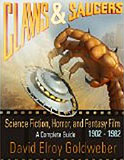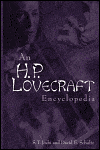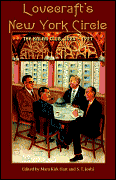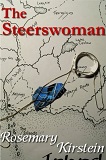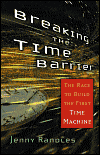
Breaking the Time Barrier, by Jenny Randles
Book Review by David L. Felts
Have you read this book?
I took this book with me to a pool outing for my daughter's birthday party. A quick glance when I picked it up engendered the impression that I'd be in store for an anthology of stories about developing time travel, perhaps akin to Harry Harrison's One Step From Earth, which was about the development of teleportation. What I got, however, was a non-fiction book about the real development of time travel as both a theory and physical reality.
Although the book discusses real theory and technology, it does so in a way that is accessible to the laymen. The result, unfortunately, is a rather dry, chronological rendition of the advancement of time travel science, from the first modern conception in the 1800s to experiments that took place in 2004.
I wasn't really able to identify the author's ultimate conclusion, other than it being that she believes time travel is possible. But whether or not is is possible in a practical sense remains to be determined.
Discussions evolved into two time travel applications, the transfer of information through time and the transfer of something physical through time. Experiments have been conducted that proves Einstein's hypothesis that the closer one travels to the speed of light, the slower time moves for that individual. This could result in time travel of a sort, since, theoretically, if one could get close enough to the speed of light, time for that person would remain constant, while time in the rest of the universe would progress at an unprecedented pace. This could certainly result in movement in the future, but the same principles don't apply to movement into the past.
Information about the past is already present, even though it might not be available. Light is the universe's information highway; it is through light the information is passed. As one moves closer to the speed of light, the slower that information reaches him, hence the slower time moves for that individual. Theoretically, if one could outstrip the speed of light, he or she would no longer be able to receive information about the universe and hence would exist out of time.
As for traveling into the past.... if we were able to launch a huge mirror to Alpha Centauri. A mirror large enough for use to see our reflection, then we would observe information directly from the past. Light takes 4 years to reach Alpha Centauri, it would reflect off the mirror and take 4 years to return. Were we able to observe the reflection from such a mirror, we would be able to observe events 8 years in the past.
While I found it mildly thought provoking, I don't really see that it has much information value in terms of real science. For someone with casual interest, such as science fiction writers, it's probably fertile ground for a few ideas on some time travel stories.
Although the book discusses real theory and technology, it does so in a way that is accessible to the laymen. The result, unfortunately, is a rather dry, chronological rendition of the advancement of time travel science, from the first modern conception in the 1800s to experiments that took place in 2004.
I wasn't really able to identify the author's ultimate conclusion, other than it being that she believes time travel is possible. But whether or not is is possible in a practical sense remains to be determined.
Discussions evolved into two time travel applications, the transfer of information through time and the transfer of something physical through time. Experiments have been conducted that proves Einstein's hypothesis that the closer one travels to the speed of light, the slower time moves for that individual. This could result in time travel of a sort, since, theoretically, if one could get close enough to the speed of light, time for that person would remain constant, while time in the rest of the universe would progress at an unprecedented pace. This could certainly result in movement in the future, but the same principles don't apply to movement into the past.
Information about the past is already present, even though it might not be available. Light is the universe's information highway; it is through light the information is passed. As one moves closer to the speed of light, the slower that information reaches him, hence the slower time moves for that individual. Theoretically, if one could outstrip the speed of light, he or she would no longer be able to receive information about the universe and hence would exist out of time.
As for traveling into the past.... if we were able to launch a huge mirror to Alpha Centauri. A mirror large enough for use to see our reflection, then we would observe information directly from the past. Light takes 4 years to reach Alpha Centauri, it would reflect off the mirror and take 4 years to return. Were we able to observe the reflection from such a mirror, we would be able to observe events 8 years in the past.
While I found it mildly thought provoking, I don't really see that it has much information value in terms of real science. For someone with casual interest, such as science fiction writers, it's probably fertile ground for a few ideas on some time travel stories.
|
Click here to buy Breaking the Time Barrier, by Jenny Randles on Amazon
|
Breaking the Time Barrier, by Jenny Randles on Amazon

| More Books You Might Like |
Comment on Breaking the Time Barrier, by Jenny Randles
| Comments on Breaking the Time Barrier, by Jenny Randles |
| There are no comments on this book. |
